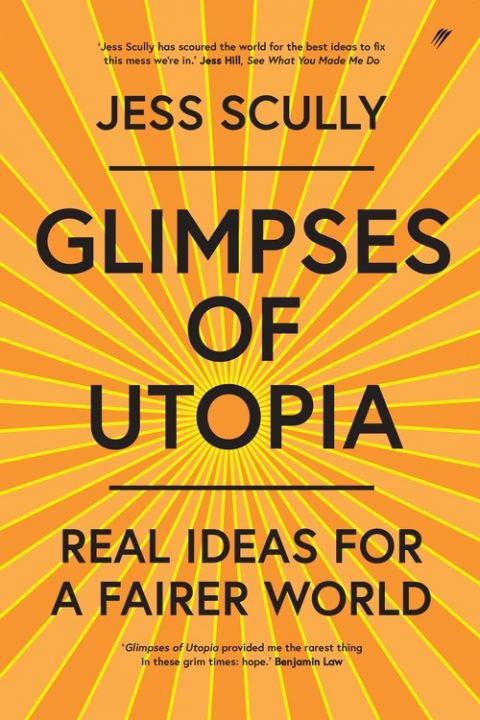Glimpses of Utopia: Real ideas for a fairer world – Jess Scully,
(Pantera Press, 2000; eBook £5.99; printed version available in Australia only)
There are 2,032 active co-operative and mutual enterprises in Australia, with a combined active membership of 31.3 million people. Co-ops provide 61,000 jobs and have a combined turnover of more than $104bn.
But they are not the default business model and, like in many places, legislation is patchy. Author Jess Scully knows this all too well. She was elected deputy lord mayor of Sydney in 2019, but her career has centred around telling stories. She founded Vivid Ideas (Australia’s largest creative-industries event), curated TEDxSydney, and has been a policy advisor, radio host and magazine editor.

Her combination of policy awareness and creative curation meet in Glimpses of Utopia through presenting stories of co-operation and mutual activity as real, achievable ideas for a fairer society. And now is the time to do that, she says. “All over the world, people are refusing the business-as-usual mindset and putting humans back into the civic equation, reimagining work and care, finance and government, urban planning and communication, to make them better and fairer for all.”
Glimpses of Utopia takes the reader through ideas of “recentring the citizen” and “refocusing politics”, advocating the devolution of decision making and encouraging people-centred engagement. It looks at how businesses can improve wider social infrastructure and encourage transition to a democratic economy. But she acknowledges this will take work; finance has to be reformed, the commons restored, equity rebuilt, the entire civic conversation restarted.
But, she adds, there are already “movements, organisations and individuals in every corner of the world who are modelling alternatives to the extractive and exploitative mindset that got us here, and for the first time in history, they can connect with each other to support and amplify their efforts”.
The book is a curation of ideas that is studded with global examples of co-operation across multiple sectors. Stories are shared about care workers in Lebanon, self-employed women in India, microfinance in Afghanistan, architects in Portugal… and there’s a fascinating juxtaposition of the Ciudad Futura (Future City) in Rosario, Argentina’s third largest city (where the original Argentinian worker co-op movement is now translating social mission into a political platform), co-operatives in Rojava (Northern Syria) and the UK’s own Preston Model.
“To get that world we can see glimpses of in these pages, there’s much that needs to change and so much work to be done,” writes Scully. “But all massive steps forward in human history have been taken by people working together”.
Glimpses of Utopia ends with a ‘to do’ list for readers interested in being active in this change, with ideas contributed by some of the people she met while compiling the book. “Move your money … demand more from data … Distribute, decentralise, devolve,” she says. “Join a co-op.”